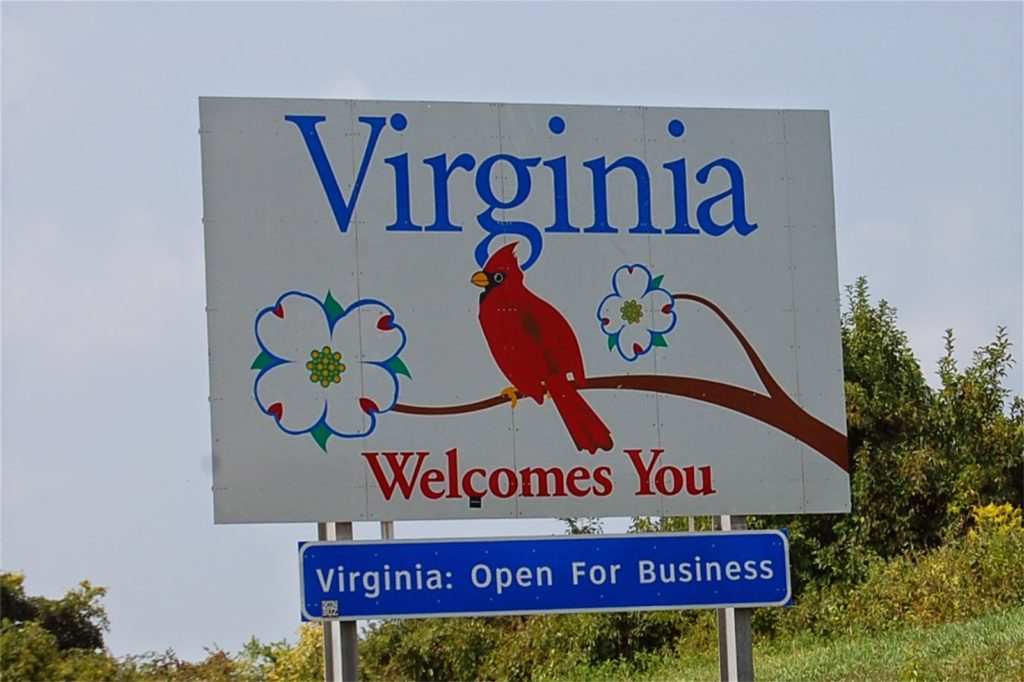Upon crossing the border into the Old Dominion, travelers are greeted by welcome signs on the highway with a cardinal sitting on a dogwood branch with the phrase “Virginia: Open For Business” emboldened on top. The expression defines the Commonwealth’s historically business-friendly environment, which was recently upgraded on CNBC’s scorecard for economic climates in states throughout the union.
For 2018, Virginia came in at number four in the U.S. for top states in which to do business, trailing just behind Texas, Washington, and Utah. The state has been improving in the last few years, according to the Richmond Times-Dispatch. Virginia ranked seventh in 2017, thirteenth in 2016, twelfth in 2015, eighth in 2014, and fifth in 2013. The Commonwealth was number one in 2011, 2009, and 2007, showing an extraordinary record over the course of a decade.
CNBC ranked states according to 10 metrics that create a lucrative statewide business infrastructure.
Workforce: 3
Infrastructure: 20
Cost of Doing Business: 34
Economy: 13
Quality of Life: 19
Technology and Innovation: 15
Education: 6
Business Friendliness: 5
Access to Capital: 13
Cost of Living: 33
According to the report, “Not only does the state have the educated, available workforce that employers demand, it has also become a leader in business friendliness with the passage earlier this year of a bipartisan regulatory reform bill aimed at reducing regulations by 25 percent in the next three years.”
During the 2018 General Assembly session, House Bill 883 was passed in the effort to begin a three-year regulatory reduction pilot program aimed at reducing regulations and regulatory requirements by 25 percent. When the program ends in 2021, Virginia’s executive branch will develop a baseline regulatory catalog with the Secretary of Finance to determine permanent regulatory cuts to increase economic growth and help businesses start and flourish.
The rankings were also influenced by Blueprint Virginia 2025, a comprehensive initiative that provides business leadership, direction, and long-range economic planning for the state. Keith Martin, executive vice president of public policy and general counsel for the Virginia Chamber of Commerce explained that fostering a competitive pro-business climate will help Virginia increase its ranking within the next few years.
“We look forward to continuing to work with our strategic partners, elected officials and business leaders from around the commonwealth to continue to implement the recommendations of ‘Blueprint Virginia 2025’ to make Virginia the No. 1 state for business once again,” Martin said.
Forbes also ranked Virginia in the top five for best states to do business. The regulatory climate and an unemployment rate below the national average – at 3.2 percent in May – has helped Virginia climb to the top of the class among states.

